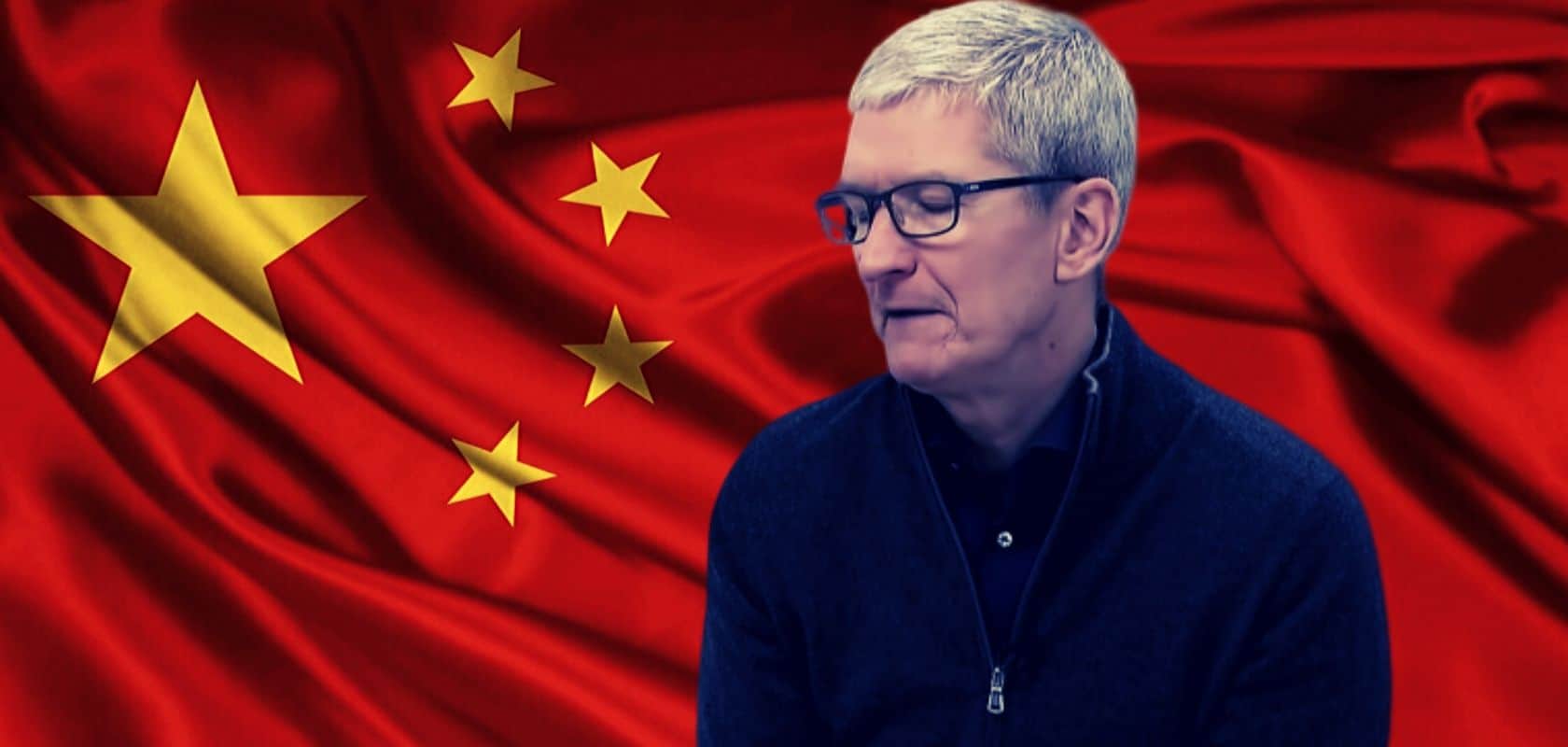
Extensive New York Times investigation reveals how the apple brand is quick to enforce Beijing guidelines.

17 Apple employees or ex-employees interviewed, 4 security experts, internal and public documents, the New York Times published a well-documented investigation into relations between Apple and China. This results in revelations about the compromises to which Apple has submitted to stay in China, censorship, data localization. Accommodations for the country which hosts a large part of the production chain for Apple products and a gigantic market.
For Apple, China represents thousands of factories, hundreds of subcontractors, millions of workers, a fifth of its income, difficult in these conditions to resist Beijing’s demands, even if they go beyond US law.
It was Tim Cook, the current CEO of the apple brand, who encouraged its establishment in the Middle Empire over twenty years ago. The New York Times shows how over the years Apple has compromised the privacy of its Chinese users and practiced proactive censorship.
The Chinese iCloud servers, in the hands of the local secret services?
The crux of the matter comes from a Chinese law introduced in 2016 and entered into force in 2017, requiring the localization of the data of its citizens in the country. A transfer accepted by Tim Cook for iCloud service data stored outside the country. June 2021, the deadline set by local authorities must complete this shift, the “Golden Gate” project according to its name within Apple.
They faced Apple with a problem, US law prevents one of its companies from providing data to China. Prior to 2017, they had met no data requests from China, after nine requests were accepted and three rejected. Low compared to requests accepted by Apple in other countries around the world, including France. But according to several experts, Beijing would not have to bother to ask.
Cupertino has circumvented US law by outsourcing iCloud data management to a Chinese state-owned company, Guizhou-Cloud Big Data (GCBD. On paper GCBD controls the hardware aspect of the servers and Apple engineers oversee them. In reality, a dilemma presented itself. Apple wanted to keep the encryption keys of the servers in the US They are normally kept in a secure system of the French company Thales (cocorico). A 2020 document reveals that ‘ in China they keep the keys in an obsolete version of iOS that can easily be hacked. Faced with these accusations, Apple said that the documents were no longer relevant and that its encryption system was very sophisticated in China. In an Apple press release. Affirm that “We have never compromised the security of our users or their data in China or wherever we operate ”.
For Matthew D. Green, professor of cryptography at Johns Hopkins University, server encryption is not enough, “The Chinese Secret Service has physical control over your hardware – it’s a level of threat you can’t let go. Achieve”. Note that encryption technologies in China must be approved by the authorities.
Apple on a tightrope over censorship
The other issue highlighted by the New York Times is Apple’s attitude towards censorship. The company has been debated frequently by its decisions, for example, to censor the Taiwanese flag or the applications for the Hong Kong protesters opposed to China, the references to the Dalai Lama … since 2017 and until as of June 2021 47,000 applications have been deleted from the Chinese App Store. We should note that a not insignificant proportion were video games, strictly regulated in the country.
Philip Shoemaker, director of the App Store from 2009 to 2016 explained that it was customary to comply with local laws, this is also the case in Russia, or Saudi Arabia for example. What the New York Times investigation reveals is the proactive nature of Apple’s censorship in China. Apple explained that ” These decisions are not always easy, and we may not agree with the laws that shape them.”
In 2018, an Apple employee allowed an application by a Chinese billionaire exiled in the United States, hostile to his country’s government. Six months later, the employee was fired for poor performance. A decision he challenges in court, he believes they ousted him to please the Chinese government.
In the documents revealed for the trial, email exchanges attest to a blacklist, a “list of Chinese sensibilities”, listing a set of topics automatically censored on the local App Store. Thus, China would not have to force Apple to censor an application, the apple brand is taking the initiative.
China, difficult to do without, as much to assume
Apple’s ambiguous position vis-à-vis China has not been a secret for a long time. Tim Cook said at a conference in China “Your choice is: do you take part? Or do you sit on the sidelines and yell at the way things should be? […] My point of view is: You introduce yourself and you take part. You step into the arena, because nothing ever changes from the sideline”.
The New York Times investigation, through its revelations, sheds a little more light on the compromises that the apple brand had to make to stay established in a country that is vital for it, both for manufacturing its products and in terms of the market. .
